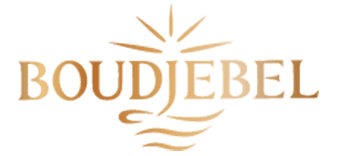Sourcing Policy
Principle
Supply Improvement Program/Supply Chain Improvement Program (PASA) is part of a quality approach followed by Boudjebel S.A. VACPA upstream of the date chain.

Part 1
Presence of the company in the production areas.

Part 2
Creation of partnerships with farmer suppliers.

Part 3
Creation partnerships with date collectors.

Part 4
Consolidation of practices acquired, particularly in terms of waste management

Part 1
Presence of the company in the production areas.

Part 2
Creation of partnerships with farmer suppliers.

Part 3
Creation partnerships with date collectors.

Part 4
Consolidation of practices acquired, particularly in terms of waste management
PASA
Implimentation and execution
Part 1
Creation of an agronomic unit in the production area headed by a highly qualified agronomist who is now the head of the PASA program. This unit includes agronomists and field technicians and its activity can be summarized as follows :
-
- To set up an agronomic watch center that informs the company of the harvest evolution throughout the year and provides a necessary database to better plan purchases.
- To select farmer partner suppliers based on PASA survey procedures and integrate them into the program.
- To disseminate beneficial agricultural practices for the benefit of PASA members.
- Distribute products provided by the company to benefit PASA member producers (organic manure, treatment products, nets for the protection of the schemes, etc).
- Monitor the production: the company has a database on the history of production over 12 years: (State of harvests by area, climate monitoring, phytosanitary status, the evolution of production, etc).
- Track purchase transactions.
- Assist the producers to manage the documentation of the global gap, Bio and Max Havelaar certified orchards.
- Additionally, during the season of dates, the service is bolstered by extra agents for quality control, the assistance of the collectors and the supervision regarding the gathering sites.
Part 2
This segment aims to set up a partnership with dates’ suppliers’ farmers. This partnership is based on two essential points:
-
- To secure the producer and prove that Boudjebel SA VACPA is not only commercial but also a company that remains attentive to its suppliers and acts according to the principles of win-win and risk-sharing.
- To integrate suppliers into the quality policy of the Company.
The producer’s involvement in the PASA program goes through a selection process. The number of partner farmers has already reached 600 members in 11 groups, including:
- 144 are certified in GlobalGAP, 133 Fair trade (Max Havelard) and Organic farming system.
- 43 are certified in Organic Crops System, 13 of which are also GlobalGAP certified.
- 103 are certified in Organic Crops System.
The producer’s involvement in the PASA program goes through a selection process. The number of partner farmers has already reached 600 members in 11 groups, including:
Part 3
The collector plays a significant role in the supply chain. The objective of PASA is to enable these stakeholders to have control over the collection according to the company’s requirements. In 2002, the collectors had ruined depots and performed their work on an occasional basis during the season. Currently, the company is sourcing from 13 large and standard-compliant collection centers.
Boudjebel SA VACPA participates in the capital of three of them and enjoys an exclusive partnership with the rest. These centers are capable of receiving and handling 15,000 T of dates. Date receipt, quality control, identification, traceability, and storage are made under the supervision of the agents assigned by the company during the season. These centers have 4,000 tons of cooling capacity in the present day and are linked to the different partner producer groups.
Part 4
Once the quantity and the quality of purchasing requirements are determined based on the annual sales program, PASA managers assess as of June opportunities for achieving the forecasts. The evaluation is carried out first according to the data from the current campaign and second for the several developed scenarios by reference to previous campaigns. It is a matter of localizing the most interesting production areas, as well as identifying and assessing the orchards with the collectors.
The company distributes, as early as July, mosquito nets to partner farmers and collectors under the supervision of PASA staff.
